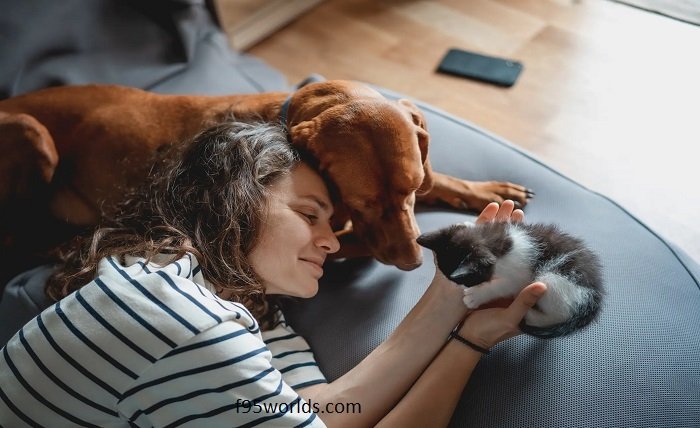The Ultimate Guide to Caring for Your Pet

Owning a pet can be one of the most rewarding experiences in life. Our furry friends provide us with unconditional love, emotional support, and constant companionship. However, pets are a big responsibility and require proper care and attention. This article will provide you with the ultimate guide on how to care for your pet.
Choose the Right Pet
The first step is deciding what type of pet is right for your lifestyle. Consider the size of the animal, energy level, grooming needs, diet, housing requirements, and temperament. For example, large active dogs need daily exercise while smaller pets like hamsters or fish may better suit your busy schedule. Think about your living situation as well – does your lease allow certain pets? Do you have the proper space at home? Taking the time to carefully select a pet will set you both up for success.
Pet-Proof Your Home
Before bringing your new pet home, you’ll want to ensure their safety by pet-proofing your house. Lock away any toxic chemicals or medications. Secure loose cables and hide any fragile items. Block access to rooms or areas you don’t want the pet entering. Cat owners should have scratching posts available to protect furniture. Bird cages should be positioned so cats cannot reach them. Take the time to thoroughly inspect for any dangers from your pet’s perspective.
Schedule Vet Visits
One of the key aspects of responsible pet care is providing medical attention. Schedule an initial vet visit shortly after adoption so they can examine your pet and recommend a vaccination schedule. Routine vet checkups allow the doctor to catch any potential health issues early. Pets also require regular booster shots and preventative care like deworming and flea/tick control. Stay up to date on vaccines and vet visits to keep your pet happy and healthy.
Provide Proper Identification
Be sure your pet always wears a collar with an ID tag containing your name, address, and phone number. Microchipping is another popular permanent form of identification. If your pet ever gets lost, proper ID will ensure they safely find their way home again. The tag should also indicate if your pet has any special medical needs. Consider registering the microchip ID in a national database as well.
Give Them Proper Housing
It’s important to provide appropriate housing for your pet. Dogs should live indoors with their human families. Get a comfortable dog bed so they have a designated sleeping space. Cat owners should have a litter box plus scratching posts and cat trees for climbing and perching. Aquarium fish need tanks large enough to swim around and properly filtered to stay healthy. Birds need roomy cages with perches at varying heights. All pets need access to fresh water at all times.
Feed a Balanced Diet
One of your most important jobs as a pet owner is providing a nutritious diet. Choose a brand of pet food designed for your animal’s needs and life stage. Follow label instructions carefully when portioning meals. Treats should only make up 10% of total food intake. Cats and dogs should be fed at consistent mealtimes rather than having food available at all times. Vary your bird’s diet with seeds, pellets and fresh fruits and veggies. Rabbits, guinea pigs and chinchillas need a constant supply of fresh timothy hay. Ask your vet if you have any diet concerns.
Establish a Grooming Routine
Proper grooming keeps your pet clean, comfortable and healthy. Long-haired dogs require daily brushing to prevent matting. Cats benefit from occasional brushing to reduce hairballs. Trimming your dog’s nails regularly prevents cracks and splits. Clean your pet’s ears gently with a cotton ball to avoid infections. Brush your cat or dog’s teeth often to reduce plaque buildup. Bathing your pet too frequently can dry out their skin so follow your vet’s recommendations. Regular at-home grooming reduces the need for professional grooming services.
Make Time for Play and Exercise
A healthy pet is a happy pet, so be sure to provide adequate physical activity. Take dogs on daily leash walks around the neighborhood or to a dog park. Play fetching games with tennis balls or frisbees. Laser pointers and feather wands are great toys for energetic cats. Aquarium fish stay stimulated with decorations like plants and rocks. Rotate bird toys to prevent boredom. Guinea pigs love running through tunnels and boxes. The right amount of playtime maintains your pet’s physical fitness and mental stimulation.
Give Them Love and Attention
Caring for your pet’s emotional needs is just as important as their physical needs. Spend quality time together every day with petting, cuddling or training sessions. Dogs thrive on human interaction and shouldn’t be left alone for too long. Cats can become withdrawn without daily attention. Bond with your pet by speaking in a soothing voice and offering praise. Build a rewarding relationship through play, walks, grooming and quality time together. Your loving companionship is vital to your pet’s happiness.
Providing comprehensive care for your furry friend involves many elements. Follow this ultimate guide for choosing the right pet, preparing your home, scheduling vet visits, providing identification and proper housing, feeding a nutritious diet, establishing a grooming routine, ensuring regular exercise, and giving ample love and attention. Fulfilling all your pet’s needs leads to years of happiness and companionship together. They depend on you for their health and wellbeing, so be sure to give your pet the proper care they deserve.
Conclusion
Owning a pet is a rewarding yet huge responsibility. By choosing an animal suited to your lifestyle, pet-proofing your house, scheduling vet appointments, properly identifying your pet, giving them appropriate housing, feeding a balanced diet, grooming them regularly, making time for play and exercise, and providing affection – you can be sure you’re covering all the bases of responsible pet care. Follow this ultimate guide to keep your furry friend happy and healthy for years to come. They provide us with so much unconditional love, so it’s important we care for them properly in return.
Frequently Asked Questions
Q: How often should I take my pet to the vet?
A: Take your new pet for their first visit shortly after adoption. Follow your vet’s recommendation for a vaccination schedule and annual checkups. Seek immediate care if they seem ill or injured.
Q: What pet supplies do I need?
A: Essentials include food and water bowls, collar with ID tag, leash, litter box and scoop, cage/tank, grooming tools, bed, and toys. Stock up on pet food and litter. Dog owners need poop bags when walking.
Q: How can I pet proof my home?
A: Lock away toxic chemicals and medications. Secure loose wires and hide fragile items. Block access to unsafe areas. Install baby gates for pets who shouldn’t climb stairs alone. Cover electrical outlets.
Q: How often should I play with my pet?
A: Make time for play and exercise daily. Take dogs on walks and play fetching games. Use cat wands and laser toys for felines. Rotate bird and small mammal toys to prevent boredom.
Q: What are signs my pet is sick?
A: Loss of appetite, lethargy, vomiting, diarrhea, excessive scratching, hair loss, coughing, limping, or other sudden changes in behavior could indicate illness. Consult your vet.




